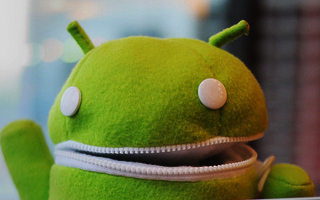
Motorola Mobility is Google’s latest acquisition and maker of some of the most popular and successful Android phones.
[aditude-amp id="flyingcarpet" targeting='{"env":"staging","page_type":"article","post_id":323010,"post_type":"story","post_chan":"none","tags":null,"ai":false,"category":"none","all_categories":"mobile,","session":"D"}']Microsoft is alleging the infringement of seven patents and is asking for an injunction on the importation of Droid 2, Droid X, Cliq XT, Devour, Backflip and Charm mobile devices.
“Investing in a broad and truly open mobile ecosystem is important for the industry and consumers alike, and Windows Phone is now the only platform that does so with equal opportunity for all partners,” said Windows Mobile president Andy Lees to VentureBeat in an email.
AI Weekly
The must-read newsletter for AI and Big Data industry written by Khari Johnson, Kyle Wiggers, and Seth Colaner.
Included with VentureBeat Insider and VentureBeat VIP memberships.
As that rather cryptic message indicates, the lawsuit is a none-too-subtle jab at the Android operating system and Google as much as at Motorola Mobility, which will now undoubtedly benefit by a closer relationship with its new owner.
Over the weekend, we noted that it might be in Google’s best interest to take up the offense with its newly acquired Motorola patents.
The patents themselves number 17,000, with around 7,500 pending approval. And as several patent attorneys told Bloomberg today, a handful of those patents might prove extremely useful in the growing pile of anti-Android patent complaints.
Today’s suit from Microsoft has a provenance that precedes the existence of Motorola Mobility as a separate entity. Microsoft first launched a roundabout Android attack via a Motorola patent suit back in the fall of 2010. At that time, Microsoft’s deputy general counsel Horacio Gutierrez said the patents relate to features and functions in Motorola’s Android phones that were “essential to the smartphone user experience.” The specific features included scheduling meetings, maintaining calendars and contacts, synchronizing email, and reporting battery life and signal strength changes. Around the same time, Microsoft also sued Motorola for inflating royalties for some of its Xbox-related technologies.
A month later, Motorola fired back at Microsoft with a lawsuit of their own, alleging the infringement of 16 patents involving Windows for PCs, Windows mobile OS and Xbox.
Now, however, the relatively recent split of Motorola Mobility from Motorola Solutions — not to mention Google’s acquisition of Motorola Mobility — may have prompted a refresh and reorganization of the complaints. And as far as asserting a proactive position on the Motorola patents is concerned, Microsoft has clearly beaten the Android parent company to the punch.
[aditude-amp id="medium1" targeting='{"env":"staging","page_type":"article","post_id":323010,"post_type":"story","post_chan":"none","tags":null,"ai":false,"category":"none","all_categories":"mobile,","session":"D"}']
As noted at the beginning of this article, this lawsuit is just the most recent in a parade of complaints against Google’s open-source Android OS and the handset manufacturers that use it. Apple has embroiled itself in patent warfare with HTC (HTC has duly countersued. And Oracle has sued Google directly, claiming patent violations in Java-related portions of the operating system itself. Google may choose to settle with Oracle, or it may choose to countersue, as well, armed with new patents from IBM and Motorola Mobility.
But one thing is for certain: The idea of an open-source operating system isn’t sitting well with anyone in particular right now, and a soft-on-patents, do-no-evil approach on Google’s part has left the company vulnerable and bleeding in shark-infested waters.
VentureBeat's mission is to be a digital town square for technical decision-makers to gain knowledge about transformative enterprise technology and transact. Learn More